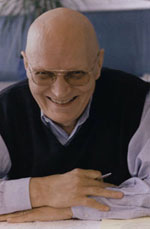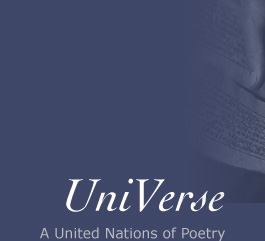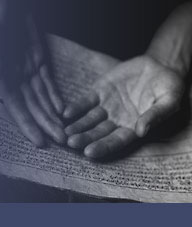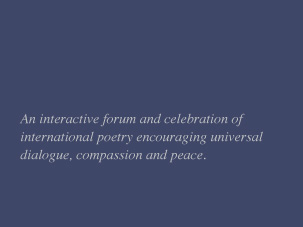| |
 |
 |
 |
 Boris Maruna was born on 10 April 1940 in Jasenice.
In November 1960 he left Croatia (then a federal republic of
Yugoslavia). After a brief stay in Italy he left for Argentina.
Early in 1965 he moved to London and eighteen months later
to the United States. He studied English and American literature
at Los Angeles. In 1971 he went to Spain where he graduated
in Spanish and Latin American Studies at Barcelona University.
He then went to live in Rome for two years before returning
to Los Angeles. There he trained to become a computer programmer
and worked as an independent marketing adviser. Boris Maruna was born on 10 April 1940 in Jasenice.
In November 1960 he left Croatia (then a federal republic of
Yugoslavia). After a brief stay in Italy he left for Argentina.
Early in 1965 he moved to London and eighteen months later
to the United States. He studied English and American literature
at Los Angeles. In 1971 he went to Spain where he graduated
in Spanish and Latin American Studies at Barcelona University.
He then went to live in Rome for two years before returning
to Los Angeles. There he trained to become a computer programmer
and worked as an independent marketing adviser.
Throughout his self-imposed exile he remained involved in the political and cultural
life of the Croatian ‘diaspora’. He contributed to the Hrvatska revija
(Croatian Review) and the London-based Nova Hrvatska (New Croatia). (more...)
|
 |
 |
English
version
Dog
In the bare mountains between Marbella and Ronda
That pitilessly recall our native Velebit
That could be Velebit
But aren’t Velebit
Just as I could be God
But am not God
– To tell you the truth
Surrounded by the mules of this world
I can hardly manage to be half a man
In those mountains then
Me and my elder brother Pero
with our respective spouses –
Met a dog
Whose whole left side
Had been torn open by a car:
We could clearly see his stove-in ribs
The black hole behind his shoulder blade
His guts swarming with flies.
We slowed down as if we’d come upon a funeral
The dog too stopped for a moment
He turned his head as far as he could
Or as far as he wanted to
To look at us dispassionately out of the corner
Of his eye and as if with some hope
And some purpose greater than reason
Went on his way over the burning cobbles
In the direction of the sea and death
Perhaps he was going back to die
In his native village?
Perhaps, being a dog he was looking for his master?
Perhaps he had in mind the final aim
Of a dog’s life, or that
He might be a perfect dog
Just as I might be a perfect god
Whereas both of us in our own way
Were really only corpses in motion
In any case
What would you have done
In his place?
Imagine your message to the young!
As far as anything at all survived
In the dog’s glazed eyes
There was only the frightening awareness
That his native village was far away
And the worst was yet to come
translated from Croatian by Bernard Johnson
original title: 'PAS' |
 |
 |
Biography
Boris Maruna was born on 10 April 1940 in Jasenice. In November
1960 he left Croatia (then a federal republic of Yugoslavia).
After a brief stay in Italy he left for Argentina. Early in 1965
he moved to London and eighteen months later to the United States.
He studied English and American literature at Los Angeles. In
1971 he went to Spain where he graduated in Spanish and Latin
American Studies at Barcelona University. He then went to live
in Rome for two years before returning to Los Angeles. There
he trained to become a computer programmer and worked as an independent
marketing adviser.
Throughout his self-imposed exile he remained involved in the political and cultural
life of the Croatian ‘diaspora’. He contributed to the Hrvatska revija
(Croatian Review) and the London-based Nova Hrvatska (New Croatia).
Maruna returned to Croatia in the summer of 1990. Several of Maruna’s poetry
collections have been published only abroad. The first of his collections to
appear in Croatia was Ovako (So, 1992), followed in 1996 by Bilo je lak_e voljeti
te iz daljine (It was easier to love you from afar). This was followed by a prose
collection, The Abductors of the Fulfilled Dream (1995), and a book of poems
entitled Instructions for an Infernal Machine (1998).
The contrast between home and abroad in Maruna’s work is a remarkable one.
In America, in spite of everything, he felt like a fish in water. After his return
to Croatia a note of scepsis creeps in. The tone may be at once detached and
humourous, as in ‘One More Proof of Proper Employment’. Maruna’s
ambivalent attitude towards Croatia speaks from his poem ‘It Was Easier
to Love You from Afar’ (also the title poem of the collection mentioned
above) in which the ‘you’ could refer to a former love, but just
as well to Maruna’s formerly distant, but in a sense new homeland.
Maruna expresses a certain wonder, indeed revulsion, vis à vis his countrymen
in ‘Lenny Bruce and the Sexual Revolution’ and ‘The Croatians
Get on My Wick’. In the first poem it is the eager imitation by Croatian
youngsters of all things Western, which provokes his criticism. In the second
poem it is the attitude of many Croatians towards anything not to their liking.
Surely, as a poet one has the right, indeed the duty, to speak out. That straightforward
quality in Maruna’s work is often seen as part of a no-nonsense attitude
acquired during his years in the United States.
Some of his poems ,‘In the Chiaroscuro Light of Eternity’ for example,
contain powerful visual images, or display a strong affinity with the visual
arts. Reading his poem ‘Dog,’ one clearly visualizes the landscape
and the doomed animal with all its emotions projected by the writer/observer.
Author: Roel Schuyt
Translated by Ko Kooman |
|
 |
|





